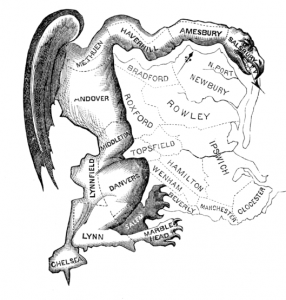The Constitution tasks the House of Representatives with setting the number of U. S. citizens that its members may represent. The Apportionment Act of 1792 fixed the House of Representatives for the Third Congress at 105 members, one Representative for 33,000 constituents. The Census of 1790, first of its kind, found the young nation numbering around 3,900,000 individuals. For purposes of computing the ratio of representatives to those represented, slaves constituted three-fifths of a free person.
112 years on, 1901, roughly midway between the Constitution’s ratification and the present day, each Representative of the 57th Congress fielded the concerns of 213,000 people and carried a six-fold increase in “representational load” over his 1792 counterpart. The House then had 357 members representing around 76 million. Had the House stayed with its 1792 ratio of one Representative to 33,000 constituents, it would have had 2,303 members in 1901, far more than what the seating in the south wing of the Capitol building could accommodate.
114 years on, the 114th Congress finds a House of 435 voting members, a number which has been fixed since the Apportionment Act of 1911. These worthies now represent about 309 million, or roughly 710,000 citizens per Representative, a four-fold increase over the 1901 representational load and a twenty-four fold increase over that of 1792. At the original ratio, the House would have almost 9,364 members, a number making for a mad house – though some think it is anyway.
